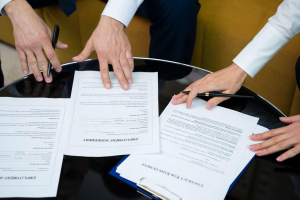
Employment lawyers are legal professionals who specialise in handling issues that arise in the workplace. They advocate for both employees and employers, depending on the situation. Employees can represent issues ranging from wrongful dismissal and wage disputes to harassment and discrimination cases. Employers help navigate complex labour laws, draft and review employment contracts, and handle disputes that could lead to litigation.
Recognising the Need for an Employment Lawyer
Identifying the need for an employment lawyer is crucial. For employees, this could be when you’re facing unfair treatment at work, are unlawfully dismissed, or when your employer breaches the employment contract. On the other hand, employers often require legal assistance when facing allegations from employees, needing legal documentation prepared, or dealing with complex labour law issues.
Key Qualities to Consider
When choosing an employment lawyer, consider the following key qualities:
● Expertise and Experience
An employment lawyer should have the necessary qualifications and substantial practical experience. Lawyers specialising in employment law will have a deep understanding of the legal landscape, ensuring they can provide comprehensive advice and representation.
● Reputation
A lawyer’s reputation can offer insight into their reliability, ethics, and success rate. Look for reviews and testimonials, or ask for references from previous clients.
● Communication Skills
Your lawyer should be able to communicate complex legal information clearly and straightforwardly. They should also listen attentively to your concerns and be responsive to your communication.
● Creativity
A creative lawyer can develop innovative strategies and solutions to handle unique challenges in your case. This trait is vital as every legal case differs and might require a tailored approach.
The Consultation Process
The initial consultation is a crucial part of the hiring process. It’s your chance to assess the lawyer’s knowledge, communication style, and willingness to assist you. Prepare a list of questions, discuss your case openly, and listen to the lawyer’s approach and proposed strategy.
Cost Consideration
Legal services can be expensive, and it’s important to understand the cost involved before hiring an employment lawyer. Most lawyers offer different payment structures, such as hourly rates and flat or contingency fees. Be sure to discuss the estimated costs upfront to avoid any surprises down the line.
In Conclusion
Choosing an employment lawyer involves careful consideration and research. Keep in mind their expertise, experience, reputation, communication skills, and cost. It’s important to find a lawyer you can trust and feel comfortable with, as they will guide you through potentially complex and sensitive legal issues.
Frequently Asked Questions (FAQs)
Q: When should I consider hiring an employment lawyer?
You should consider hiring an employment lawyer if you face unfair treatment, unlawful dismissal, or any employment contract issues. Employers should hire a lawyer when facing allegations from employees, preparing legal documents, or navigating complex labour laws.
Q: What services do employment lawyers provide?
Employment lawyers provide various services, including representation in wrongful dismissal cases, wage disputes, harassment and discrimination. They also advise on labour laws, draft and review employment contracts, and handle workplace disputes that could lead to litigation.
Q: How much does an employment lawyer cost?
The cost of an employment lawyer can vary significantly based on factors such as their experience, the complexity of the case, and their payment structure. Some may charge an hourly rate, while others might work on a contingency basis. It’s important to discuss fees and expenses upfront during your initial consultation.
Q: How can I find a reputable employment lawyer?
You can find a reputable employment lawyer by conducting online research, checking their reviews and testimonials, asking for references, or seeking recommendations from trusted sources such as family, friends, or professional contacts.
Q: What should I expect during the initial consultation with an employment lawyer?
During the initial consultation, you should expect to discuss the specifics of your case in detail. The lawyer will assess your situation, answer your questions, provide preliminary advice, and propose a strategy. This meeting is also an opportunity to evaluate the lawyer’s communication style, knowledge and whether you feel comfortable working with them.

